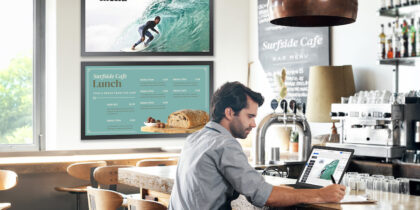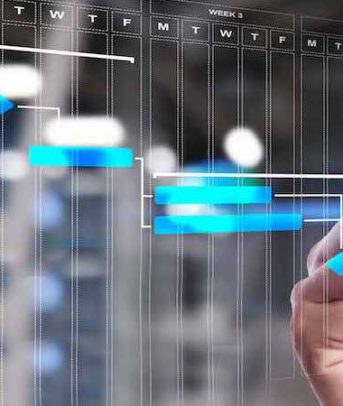For business owners that don’t qualify for regular commercial loans or who need extended terms, the Small Business Administration (SBA) loan programs can serve as a credit lifeline. SBA loans have certain terms and structures that it’s important to understand, and particular situations where you would best leverage them. Learning the basics of SBA loans will help you decide if it’s the right type of loan program for your unique business needs.
This article provides essential information on SBA loans for small businesses.
What are SBA loans?
First, it’s important to understand the SBA does not make direct loans. The sole exception applies to disaster recovery loans, such as the Economic Injury Disaster Loan (EIDL). These are considered emergency loans, so minimizing the process and review time is crucial. Outside of that exception, the SBA serves as a loan guarantor to loans originated by banks and other financial institutions. In the event that a loan recipient would default on their loan, the SBA guarantees that it will reimburse the lender 50 to 85 percent of the loan proceeds, depending on the specific SBA loan program.
Here are the general requirements:
- All SBA loan recipients must meet the SBA size standards, which vary by industry. Some standards are based on average total revenue or on the average number of employees.
- As an SBA applicant, you’re expected to use personal assets first, such as savings, and demonstrate a need for the loan proceeds.
- Your business must be a for-profit enterprise operating in the U.S. or its territories, and you cannot be delinquent on any federal debt obligations.
Types of SBA loans
The SBA provides multiple loan types ranging from a few thousand dollars to $5.5 million to cover a variety of small business sizes and needs.
SBA microloans
The SBA microloan program was created to ensure better access to growth funding for the smallest businesses. And while the SBA administers this program, it operates somewhat differently. This program uses funding intermediaries — nonprofits experienced in lending and technical assistance — not banks. Therefore, you must apply to the microloan funding entity directly and they have to approve your application.
- The program provides a maximum of $50,000 to startups, microbusinesses and small businesses seeking to expand.
- The approval is based predominantly on the applicant’s (or loan guarantor’s/cosigner’s) personal credit profile.
- You can use the loan funds for working capital, inventory, supplies, and furniture, fixtures and equipment (FF&E).
SBA 7(a)
The SBA’s most commonly used loan program, the 7(a) works best for companies seeking to renovate, construct or purchase real estate or large equipment and machinery. You can also use this program to fund business expansion, such as opening a new office, business acquisitions, furniture and fixtures for an interior build-out, supplies and materials, inventory or receivables.
- The maximum loan amount is $5 million. The maximum guaranteed amount to the bank is $3.75 million, or 75 percent, and the maximum guarantee for loans up to $150,000 is 85 percent.
- Most 7(a) loans are fixed-rate loans of various lengths. However, some are variable rate loans for short- and long-term working capital. Some owners obtain a fixed-rate term loan for large assets and a variable rate working capital loan at the same time.
- Some banks obtain designation as SBA-preferred lenders because they have a deeper relationship with the SBA and know all aspects of the SBA lending process. These banks can unilaterally approve an SBA 7(a) loan typically up to $1 million. Also, these lenders generally receive loan guarantee approval from the SBA in 24 hours.
SBA Express loan
This loan is actually a subcategory of the 7(a) loan. The difference is they only have a 50 percent guarantee rate. If you need a credit line or a smaller term loan, this may work for you because it uses a streamlined process. The maximum loan amount is $350,000; lenders have credit approval authority and even use their own loan forms. The SBA usually approves the loan guarantee in 24 hours. Several national banks use this 7(a) program to serve their small business customers.
SBA 504 loan
A business owner would typically use a 504 loan for long-term, fixed-rate financing to buy, modernize or renovate owner-occupied property, machinery, equipment or other large assets. The program involves a certified development company (CDC), and you can only obtain this loan by reaching out directly to a CDC that provides 504s and getting approved. Specifically, you must identify and work with your target CDC to get preapproved. The CDC works directly with the SBA and lender and ultimately submits the loan package to the SBA, and you work directly with the CDC. CDCs have limited resources, so this structure hastens the process and ensures they devote their effort to firms that meet their requirements.
- This loan is like the 7(a), but it helps promote economic development. Therefore, the 504 typically requires you to forecast additional hires or other local, regional or state impact.
- You can fund up to 90 percent of your project. The typical mixture is a 10 percent owner contribution, 40 percent CDC funding and 50 percent bank or credit union loan.
- The maximum loan amount is $5 million for 10-, 20- or 25-year terms. The maximum increases to $5.5 million for energy-efficent or manufacturing projects.
- Your business must have a tangible net worth of under $15 million and an average net income of less than $5 million for two years preceding application submission.

How to move toward an SBA loan
If you have a strong business banking relationship and your bank offers SBA loans, use your bank first. If you need $350,000 or less and you do not have a strong relationship with your bank, or your bank has no SBA loan personnel, consider going directly to an SBA Express lender. If you need more than $350,000, another option is using an SBA-preferred lender.
If you do not have a chief financial officer (CFO), controller or someone who can help with your loan preparation and documentation, consider using the services of your local Small Business Development Center (SBDC) office. In nearly all states, you can get prequalified by an SBA loan advisor through an SBDC advisor. The advisor will then refer you to an appropriate bank. Remember, this is not preapproval. Instead, an SBDC or other SBA-approved advisor helps you complete the paperwork, like a CFO would. This step is not necessary but can be very helpful in navigating SBA requirements.
Who lends and who borrows?
Small businesses can benefit greatly from working with business bankers — generally VP level or above — at local community banks or at business-focused credit unions. Those that focus on small businesses tend to have entrepreneurs on their board of directors and are more familiar and tolerant of small businesses, especially in industries they do a lot of business with. Conversely, national banks tend to focus on large corporations — though these banks have a small business division, businesses in the sub-$10-million category can find it difficult to get the support and loan approval they seek.
If your bank does not have an in-house SBA loan division and you are set on obtaining an SBA loan, choose one from the top 100 7(a) lenders list. Banks that provide hundreds of SBA loans typically have extremely strong SBA relationships and bankers who are highly familiar with SBA requirements.

Advantages of SBA loans
SBA loans have numerous advantages, including the following:
- SBA loans typically provide longer terms for loans. For example, many equipment loan providers offer three- to five-year terms, but the SBA offers up to 10 years. For business-occupied real estate, many lenders offer 25-year amortization with a 5- or 7-year balloon. However, the SBA offers up to a full 25-year mortgage.
- When there is no default, an SBA line of credit (LOC) does not get called when portfolios degrade or the business situation changes, as can happen with regular LOCs.
- Startups with little or no payment history or business owners who have fair credit can still get a loan if they have a strong cosigner or assets.
- The interest rate for business owners with questionable credit will be below the market rate, which can exceed 30 percent with factoring, credit cards or fintech financing options.
Choose the right phone for your growing business
Get your free guide to matching the right smartphone with your business and employee needs. Download Now
Disadvantages of SBA loans
SBA loans have some disadvantages, including the following:
- For businesses and owners with strong credit, the interest rate coupled with the guarantee rate typically translates into higher loan costs than a regular commercial loan.
- The SBA requires a personal guarantee for any loan over $25,000 when the business assets don’t provide sufficient collateral for the full loan amount. There is no early removal for strong performance. Plus, any property with excess equity that you or the business obtaining a loan owns in your or its name will be tied up in the unlimited personal guarantee. For example, if you own a home, a second home or rental property in your name, the SBA will tie them all up in the guarantee.
- Because the SBA guarantees a bank’s loan to you, if you encounter financial difficulties and need to restructure the loan, the bank will have very limited capability to do so.
Who should get an SBA loan?
As with any loan, an SBA loan will work better for some than others. If you or your business meets some of the below criteria, you may be a suitable candidate.
- A startup or microbusiness whose owner has good (i.e., 600-680) credit but no business credit history and is unable to get a business loan elsewhere might consider an SBA loan. Consider the SBA Express loan or the SBA microloan program.
- An expanding business that will hire employees upon the purchase, renovation or construction of a new place of business might consider an SBA loan. The 504 programs provide great below-market rates and long-term mortgages.
- Firms buying equipment or machinery that need more time to pay off the loan than other lenders are providing might consider an SBA loan. In such a case, the reduced payment amount due to the longer repayment period, as well as the associated higher monthly cash flow, can fully offset the higher loan costs.
- Firms making acquisitions where the selling firm does not have all the necessary paperwork to allow the acquirer to qualify for a regular commercial loan might consider an SBA loan. Consider the 7(a) program.
For more details on any of the loans above, check out the SBA’s loan page.
Samsung is dedicated to helping your small business grow — every step of the way. Explore exclusive business pricing, discounts, financing options and other deals on everything from phones and tablets to monitors and memory.






